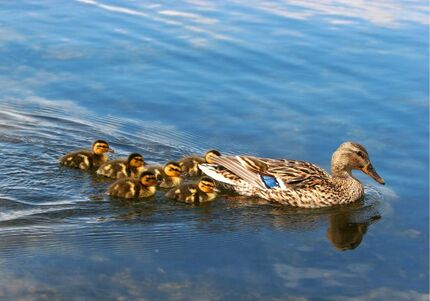|
Of course most of us worry about this. It's very normal. But I've also been thinking about where this comes from. And, I'm guessing that if you grew up in a family that knew how to communicate and take care of each other, the voices inside your head would be saying "Of course I'm a good parent." The reason you'd have that inner voice is that you had experiences of being parented well, so you have a foundation and a blueprint for how to parent. But the worry, I wonder if that's especially loud in the heads of those of us who have experienced isolation, distress, and even harm in our family. Maybe it was intentional, maybe it wasn't, and maybe they didn't even know what was happening to us, but the result was the same... we were left alone to deal with things we couldn't handle. So, without communication skills and a model of care, here we are trying to be parents, but how the heck are we supposed to know how to do that? If it's not in our experience we don't have the tools that make up connected relationship. Here's a video I made about asking ourselves about whether we're good parents or not, and the invitation to ask a different question instead. Just because we had a difficult childhood, doesn't leave us without resources though. As adults we can learn to relate to others, to care for and tend to ourselves, and to create a nourishing and protective household. In this video I talk about how nature can provide us with a template for our family that is connective, caring, and responsive. That is, how can we envision this family culture when we don't have a direct experience of it to work from? The answer is, we look to nature systems. We look for how members of an ecosystem work together. This works well for two reasons. One, nature tends to be soothing to our nervous system. The chemistry that plants put into the air tends to produce a calming response in the human brain and this de-escalation of stress and tension tends to open us up to new possibilities. The second reason is that our wounds often stem from interactions we've had with other humans, and so they can feel dangerous. But nature doesn't have an agenda for us. We can interact without vulnerability to someone's response. This dance between the calming of our nervous systems, and the safety provided in being able to observe nature, creates the conditions by which we are able to be creative, inspired, and original. We are able to be ourselves when we are not under the watchful eye of other humans, and yet we don't have to sacrifice a sense of belonging in order to to escape them. Do you have experiences of being yourself in nature? Where were you? What inspiration did you have?
0 Comments
|
Author: Jill cliftonHi, I'm Jill, creator of Landscape of Mothers. I'm here to talk about breaking family patterns of harm so that we can parent our children in ways that support them becoming fully themselves. I'm happy to have you here! Archives
May 2024
Categories
All
|


 RSS Feed
RSS Feed